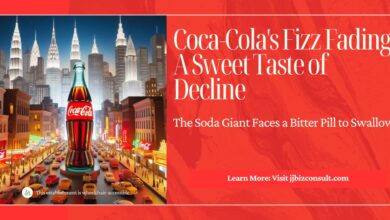Consumer Trust: A Global Perspective

Consumer Trust: A Global Perspective. In an interconnected world, trust plays a pivotal role in shaping our perceptions of companies and institutions. The 2023 Edelman Trust Barometer, a comprehensive survey conducted across 28 countries, sheds light on how trust varies across nations and industries. Let’s delve into the findings and explore the nuances of consumer trust.
Consumer Trust: The Survey and Its Scope
The research, produced by the Edelman Trust Institute, involved 32,000 respondents who participated in 30-minute online interviews between November 1st and November 28th, 2022. These respondents hailed from diverse backgrounds, providing a robust dataset for analyzing trust dynamics.
Comparing Trust in Companies by Headquarters
The survey focused on companies headquartered in three major economic powerhouses: China, the United States, and Germany. Here’s what the data revealed:
- China: Trust in companies based in China was strikingly low, with only 30 percent of respondents (excluding those from China) expressing trust in these firms. This skepticism likely stems from concerns related to transparency, regulatory practices, and geopolitical tensions.
- United States: American companies received a more neutral response, with 53 percent of respondents indicating trust. While not overwhelmingly positive, this reflects a middle ground where trust isn’t eroded but isn’t robust either.
- Germany: Companies based in Germany enjoyed the highest level of trust. An impressive 62 percent of respondents outside of Germany expressed confidence in German firms. This trust advantage can be attributed to Germany’s reputation for quality, reliability, and strong corporate governance.
Consumer Trust: Factors Influencing Trust
Several factors contribute to these divergent trust levels:
- Transparency: Companies that openly communicate their practices and values tend to gain trust. Transparency fosters credibility and reassures consumers.
- Regulatory Environment: Trust is influenced by the regulatory landscape. Countries with robust regulations often inspire greater confidence.
- Cultural Context: Cultural norms and historical context shape perceptions. Germany’s engineering prowess and commitment to excellence contribute to its trustworthiness.

Business as the Trusted Institution
Interestingly, the survey highlighted that business emerged as the most trusted institution globally. Amid societal divisions and waning faith in other institutions, people look to businesses for competence and ethical behavior. This places a significant responsibility on CEOs and corporate leaders.
The Way Forward
As we navigate a polarized world, here are actionable steps for businesses:
- Leverage Comparative Advantage: As the most trusted institution, businesses should actively engage in societal issues. Address climate change, diversity, equity, and skill training.
- Collaborate with Government: Business and government must collaborate to create a just, secure, and thriving society.
- Restore Economic Optimism: Invest in fair compensation, training, and local communities to bridge the mass-class divide.
- Advocate for Truth: Be a reliable source of information, promote civil discourse, and combat misinformation.
In conclusion, trust isn’t a static concept; it evolves with changing times and contexts. Companies that prioritize transparency, ethics, and social impact will continue to earn the trust of consumers worldwide.

Other findings from the Edelman Trust Barometer?
The Edelman Trust Barometer provides valuable insights into global trust dynamics. Beyond the specific findings I mentioned earlier, here are some additional key takeaways from the 2023 and 2024 reports:
- Economic Optimism Declines:
- People’s economic anxiety has led to a collapse in economic optimism. Only 40 percent of respondents believe they and their families will be better off in the next five years, marking a 10-point decline from 2022.
- This lack of trust in economic security underscores the need for businesses and institutions to address financial concerns.
- Distrust Breeds Polarization:
- The survey revealed that people are increasingly unwilling to engage with those who hold differing viewpoints. Very few respondents would help, live near, or work with someone who disagreed with their point of view.
- This polarization poses challenges for societal cohesion and collaboration.
- Business as the Trusted Institution:
- Despite societal divisions, business emerged as the most trusted institution globally. People look to companies for competence and ethical behavior.
- CEOs have a responsibility to improve economic optimism and hold divisive forces accountable.
- Country-Specific Trust Levels (2024):
- The United Kingdom ranks among the least trusting countries, with a Trust Index score of 39. Other G7 nations also exhibit low trust: Canada (53), Italy (50), France (47), United States (46), Germany (45), and Japan (39).
- Business’s Role in a Polarized World:
- Business should leverage its comparative advantage to inform debate and deliver solutions on issues such as climate, diversity, equity, and skill training.
- Collaboration with government is crucial for creating a more just and secure society.
- Investing in fair compensation and local communities can help bridge the mass-class divide.
- Businesses should advocate for truth, promote civil discourse, and combat misinformation.
In summary, the Edelman Trust Barometer underscores the importance of trust-building efforts by businesses, institutions, and leaders to navigate a polarized world and foster a more resilient and cohesive society.
Year in Review 2023 : Unprecedented Challenges and Unstoppable Triumphs
Limited Brand Loyalty: The Pitfalls of Shallow Customer Relationships





